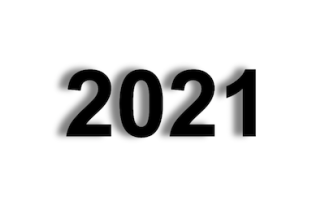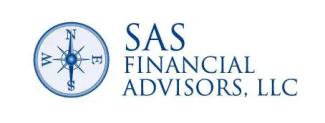
As 2021 ends, we can reflect on the challenges this year presented
There are few decisions in life that do not involve finances on some level. Our interest: advising SAS clients by introducing and collaborating on the most appropriate frameworks so that clients can make the best decisions at the time those decisions will be or need to be made.
Being happy is up to each of us and our goal at SAS Financial Advisors is to make our clients happier by giving them confidence and control over their decision-making. The correlation and overlap between control, confidence, and happiness are high. Human nature drives us to try to control many life variables, people and decisions, and many other external factors outside ourselves, not in our control. This can lead to frustration, anger, disappointment, blaming, and lots of other self-inflicted wounds along our journey to being happy.
For instance, market performance is an external factor and something that we cannot control. On the other hand, our own spending and saving are internal factors that are within our control. If we, advisors and clients alike, make conservative assumptions for markets and then put more focus on our own behaviors that are in our control, that will position you and us for better possible outcomes. It doesn’t always mean we get there but at least we know that we position our clients for success as best we can. The data backs this up. For a given client scenario and projection, there is a greater impact on the probability of success by focusing on savings and spending needs compared to the proportionately smaller impact that additional market returns can provide. Both are important to focus on, to the degree to which they are in our control, but with different magnitudes on outcomes.
As 2021 ends we can reflect on the challenges this year presented. Of course, each year has its challenges but the pandemic creates an overlay to everything that happened in 2021. This morning I heard Mark Zandi, chief economist from Moody's, predict that 2022 will bring relief from the pandemic and a return to steady economic growth and low unemployment. Inflation should recede to more normal levels in 2022 as well, Zandi said. He was also asked if he agrees with JP Morgan Chase’s 2022 outlook for complete economic recovery.
The Omicron variant and market reaction reminded us last week of the fragility of markets with asset values inflated by low-interest rates and fiscal policy. According to experts smarter than us, 2022 should be a lot better for the economy and public health. Notice we didn’t say better for market performance. The 3 elements don’t necessarily move together.
World Wealth Long Term Economic Study
Link: https://wir2022.wid.world/executive-summary/
There was a long-term economic study on world wealth compiled over 4 years by 100 researchers essentially confirming what we all hear on the news and see in our lives. This is a summary of some statistics from the report that encapsulates world income and wealth inequality:
- An average adult individual earns PPP €16,700 (PPP USD23,380) per year in 2021
- The average adult owns €72,900 (USD102,600).
- These averages mask wide disparities both between and within countries.
- The richest 10% of the global population currently takes 52% of global income
- Whereas the poorest half of the population earns 8% of it.
- On average, an individual from the top 10% of the global income distribution earns €87,200 (USD122,100) per year
- Whereas an individual from the poorest half of the global income distribution makes €2,800 (USD3,920) per year (Figure 1).
- Global wealth inequalities are even more pronounced than income inequalities.
- The poorest half of the global population barely owns any wealth at all, possessing just 2% of the total.
- In contrast, the richest 10% of the global population own 76% of all wealth.
- On average, the poorest half of the population owns PPP €2,900 per adult, i.e. USD4,100
- And the top 10% own €550,900 (or USD771,300) on average (Figure 4)
Youth Mental Health
More sober news on the youth mental health front and youth screen time. A couple of articles from the news about mental illness in our youth exacerbated by the pandemic and the impact of screen time, time spent on social media. These are important issues impacting us all. No easy solutions.
- Link: https://www.nytimes.com/2021/12/07/science/pandemic-adolescents-depression-anxiety.html
- Link: https://www.cnn.com/2021/12/08/tech/social-media-parents/index.html
Additional Resources: Retirement Plan and IRA Required Minimum Distributions FAQs
For 2021, Required Minimum Distributions, or RMDs, will be required from all eligible accounts before 12/31/2021. Last year, 2020, the CARES Act provided a one-year suspension on Required Minimum Distributions. That suspension ended on 12/31/2020.
To determine if you may be required to make a Required Minimum Distribution in 2021, consider the following two questions:
- Yes/No: Are you age 72? OR were you age 70.5 years old as of 1/1/2020? OR Regardless of age, do you own an inherited or beneficiary retirement account of any kind?
- Yes/No: Do you own any of the following employer-sponsored retirement plans? Profit-sharing plans, 401(k) plans (including Roth 401(k) plans), 403(b) plans, and 457(b) plans. Do you own any traditional IRAs and IRA-based plans such as SEPs, SARSEPs, and SIMPLE IRAs? (Note: RMD Rules do not apply to Roth IRAs while the owner is alive).
If you answered "Yes" to both of the above questions, you may be required to make a distribution from each eligible account before 12/31/2021.
For SAS managed accounts eligible for a 2021 RMD, please contact the SAS Advisor Team with the following information before 10/31/2021:
- If you would like your RMD to be completed with the same instructions as 2019
- The percentage to be withheld for federal *and* state taxes, or mark none
- The account to receive the RMD funds into either another owned Individual, Joint, or Trust account managed by SAS, or an external linked account not managed by SAS
- If banking instructions are not on file, please complete, sign and send back the following form to the SAS Advisor Team along with your responses: https://veoone.tdainstitutional.com/teamsite_vdh/resources/documents/downloadforms/TDAI9341.pdf
For non-SAS managed accounts eligible for a 2021 RMD, contact that account's advisor, custodian, or plan administration to complete the 2021 RMD before 12/31/2021.
IRS RMD Reference Link per the date of this blog 10/15/2021: https://www.irs.gov/retirement-plans/retirement-plans-faqs-regarding-required-minimum-distributions
This website is informational only and does not constitute investment advice or a solicitation. Investments and investment strategies recommended in this blog may not be suitable for all investors. SAS Financial Advisors, LLC and its members may hold positions in the securities mentioned within this newsletter.
The SAS Newsletters are posted on the SAS Blog weekly: https://www.sasadvisors.com/blog

